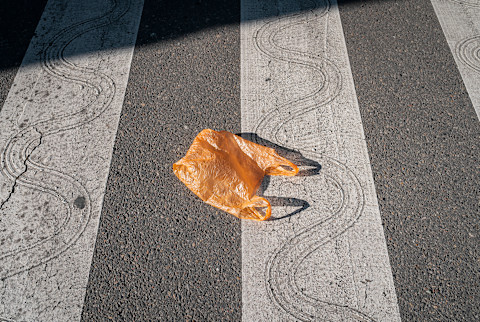Eco-Anxiety Is On The Rise — But That's Not Necessarily A Bad Thing

The year 2019 marks yet another year of extreme storms, environmental refugees, and unsettling predictions about the future of our planet. Given the growing body of research associating global warming with higher rates of depression1, suicide2, and heart disease3, countries like the U.S. and Australia have declared climate change a "health emergency." The World Health Organization went a step further to call it4 the greatest threat to global health in the 21st century.
Global warming is no longer an issue for the future: It's affecting us right now, more than ever before, and 38% of Americans now say they have felt it in some fashion. The urgency of the problem has made way for a new condition to enter the zeitgeist: eco-anxiety.
"Eco anxiety is a pop-psychology term that captures a variety of people's troubled reactions to environmental issues and climate change," Thomas Doherty, Psy.D., a clinical psychologist in Portland, Oregon, who specializes in applying an environmental perspective to mental health, tells mbg. While he says that feelings of anxiety about the state of the planet are nothing new, they can be exacerbated by all the negative news out there.
Psychologists and primary care doctors5 around the world are now citing an uptick in the number of patients who fall into this eco-anxious category, and organizations are responding by legitimizing the condition. The American Psychiatric Association (APA), for example, has a half-dozen climate-change-related sessions planned for its 2019 annual meeting, Rolling Stone reports. While there are no numbers to show how many people suffer from eco-anxiety per se, in a 2018 survey by the Yale Program on Climate Change Communication, 21% of Americans polled reported being "very worried" about climate change.
Doherty believes that anxiety—as long as it doesn't become debilitating—isn't a bad thing since it can push us to take action to prevent the future that we're fearful of. "Eco-anxiety can be healthy, and these concerns can help people become aware and take action and mobilize," he says. "So I think that eco-anxiety is our friend."
Maria Ojala, Ph.D., a psychologist at Örebro University in Sweden, put it well when she asked Live Science, "Is it more pathological for someone to be so worried about climate change, or is it actually more pathological that people are not more worried about it?"
Eco-anxiety as a driver of eco-activism.
In September of this year, 7.6 million people around the world proved that they were ready to use their anxiety as a rallying force. The Global Climate Strike, led by a formidable group of young people like Greta Thunberg, Xiuhtezcatl Martinez, and Isra Hirsi, was a mass demonstration that the next generation isn't just going to sit back as the world burns.
"I think that climate is [to Gen Z] what the Cold War was to Generation X—and probably more," Heather White, a conservation policy expert and former head of the EWG and Yellowstone Forever, tells mbg. She says her own daughters, ages 12 and 14, are constantly asking what else can be done to fight for the climate: "It's not enough for us all to eat less meat and compost. We have to have policy action—and I think these kids know it."
Looking forward to 2020, we're hopeful that the severity of the climate crisis will encourage people of all ages to take a step beyond conscious consumerism—whether that means volunteering for eco-minded political campaigns, donating large amounts of time and energy to environmental causes, or switching to a career that's more aligned with their values. Because, as White puts it, "As much as individual action can make a difference, we can't shop our way out of the climate mess."
